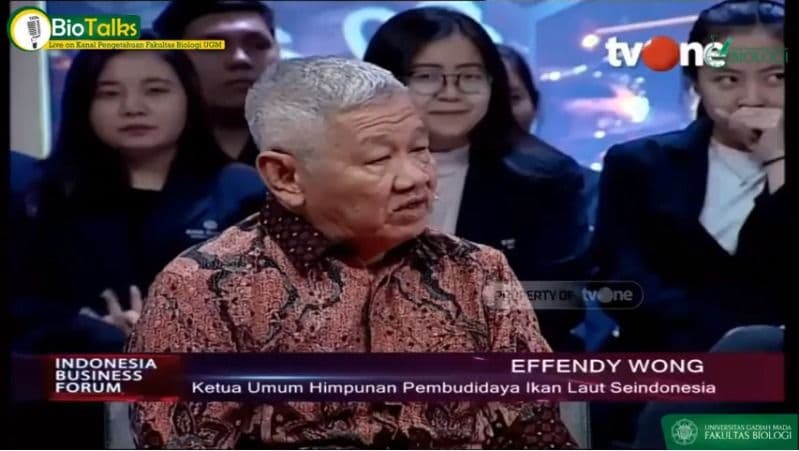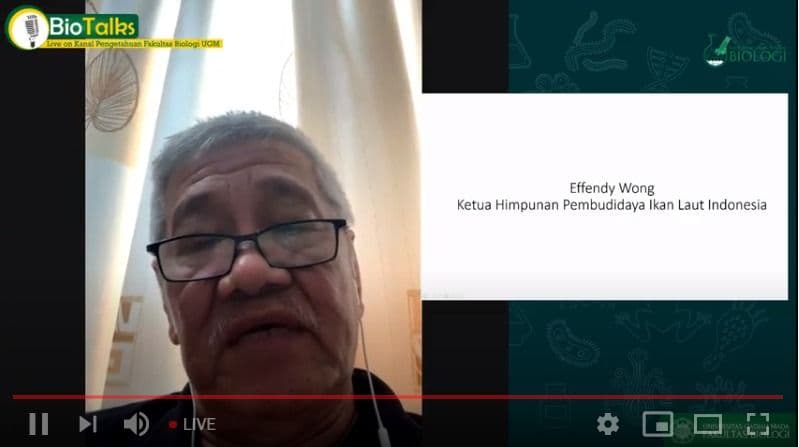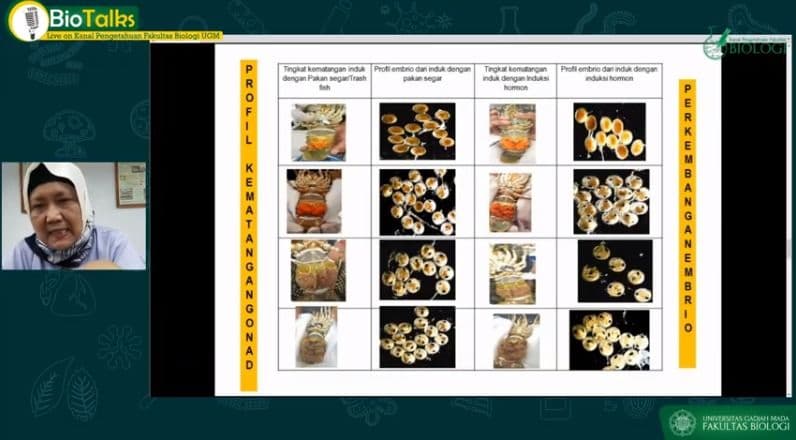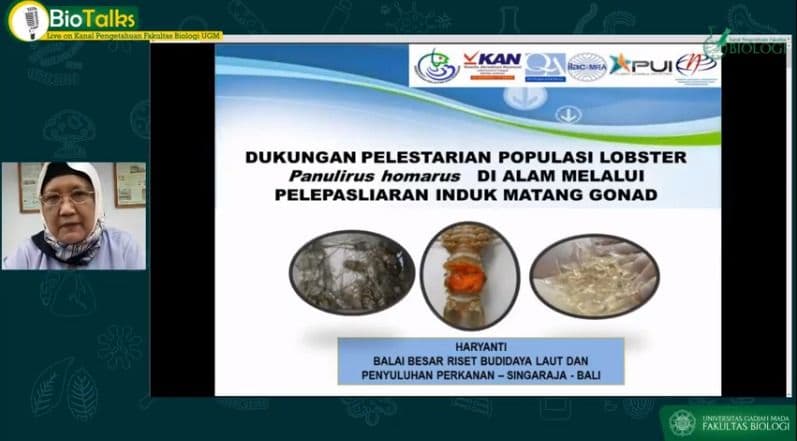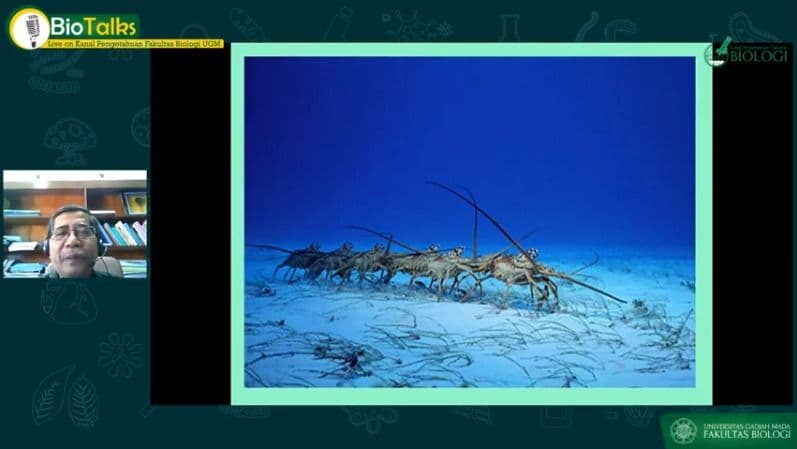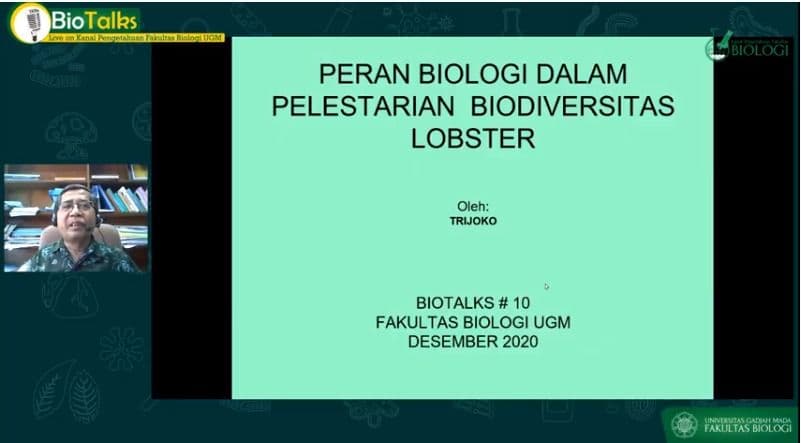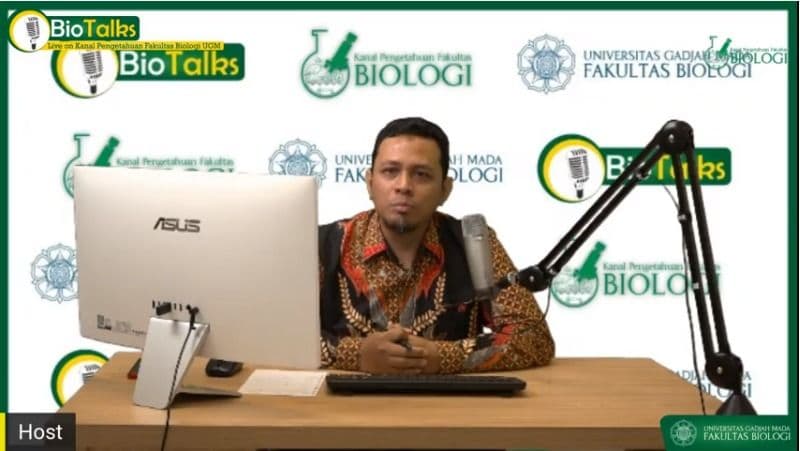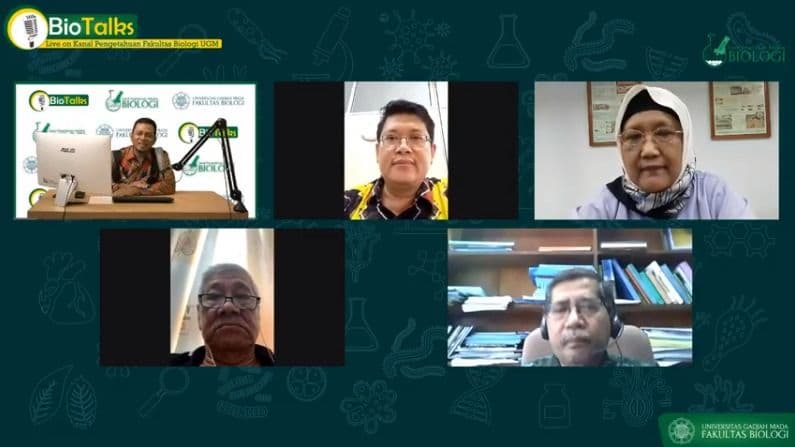Vietnam is considered successful in farming lobster for commercial needs. Therefore, recently, rumors of re-opening the lobster seed exports to Vietnam were circulating. In response, the Faculty of Biology organized the 10th biotalks discussing: The Role of Biology in the Conservation of Lobster Biodiversity. It was held on Thursday, December 10, 2020, with speakers: Drs. Trijoko, M.Si. (Expert on Animal Systematics and Carcinology, Faculty of Biology UGM), Effendy Wong (Chair of the Indonesian Marine Fish Cultivators Association), Prof. Dr. Haryanti, M.S. (Main Expert Researcher of the Center for Marine Cultivation Research and Fisheries Extension; UGM Alumni F.Biology 1976) and moderated by Rury Eprilurahman, S.Si, M.Sc.
The first speaker, Drs. Trijoko, M.Si., presented on the Role of Biology in the Conservation of Lobster Cultivation in Indonesia. Lobster exports have been steadily increasing in recent years; however, it results in side effects of environmental damage. Efforts should be made to prevent environmental damage, for example, the development of sea farming. Also, it is necessary to conduct a study on natural larvae feed and nurseries. In addition, Prof. Dr. Haryanti, M.S., as the second speaker, discussed the preservation of lobster populations in nature. She mentioned that, to prevent overexploitation, it is necessary to restore lobster resources. For example, it can be done by producing adults with mature gonads and release them into the wild. The last speaker, Effendy Wong, discussed the conditions of lobsters in the wild and the potential of lobster seeds in Indonesia. He believed that Indonesia, with its abundant seed availability, should develop lobster cultivation on its own.

